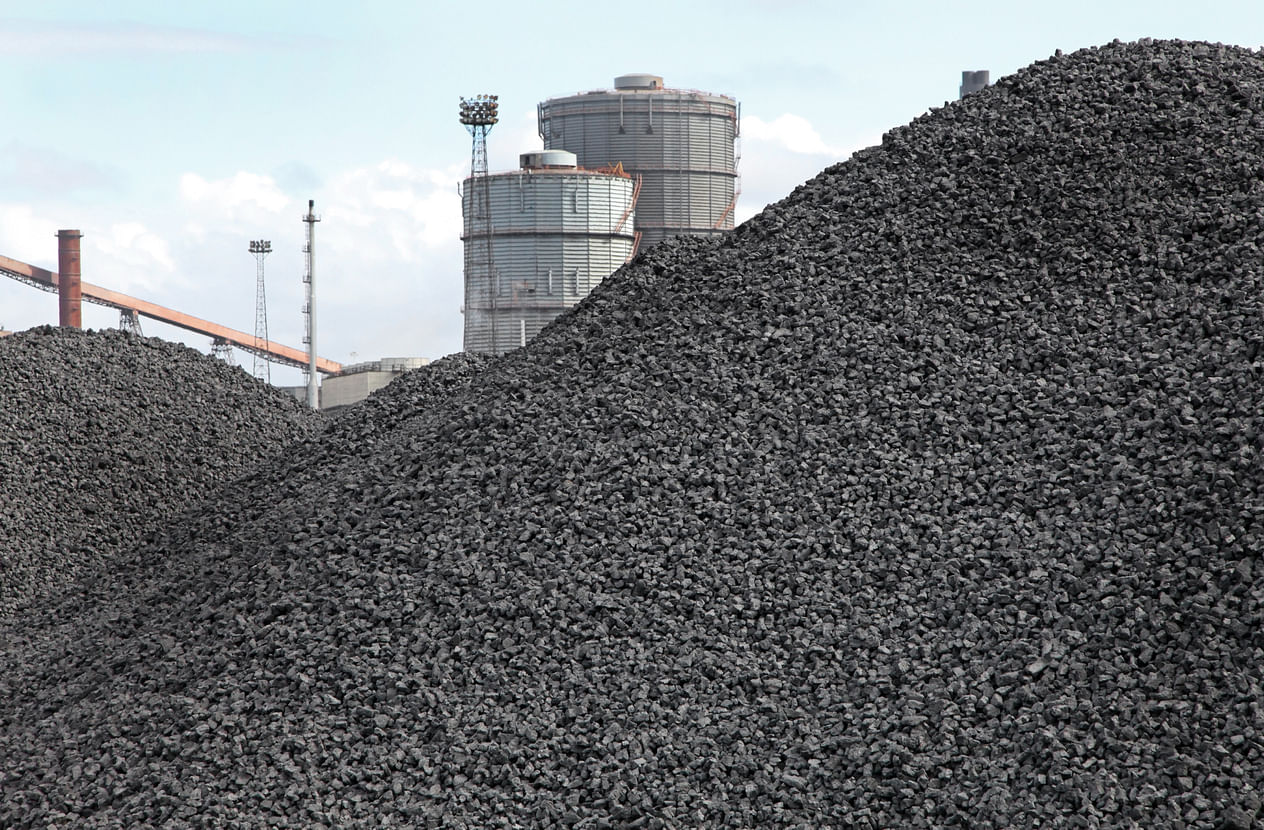
Amid the coronavirus pandemic, thermal coal imports at India's major ports saw a 35.94 per cent decline to 12.29 million tonnes (MT) in the first two months of the current financial year, according to the Indian Ports' Association (IPA).
Coking coal imports witnessed a dip of 24.05 per cent to 7.47 MT in April and May this year.
The ports had handled 19.19 MT of thermal coal and 9.84 MT of coking coal, respectively, in the April-May period of the previous financial year.
The IPA, which maintains cargo data handled by these ports, in its latest report said "percentage variation from the previous year" in thermal coal handling was at 35.94 per cent and 24.05 per cent in coking coal.
Thermal coal is the mainstay of India's energy programme as 70 per cent of power generation is dependent on the dry fuel, while coking coal is used mainly for steel making.
India is the third-largest producer of coal after China and the US, and has 299 billion tonne of resources and 123 billion tonne of proven reserves, which may last for over 100 years.
India has 12 major ports -- Kandla, Mumbai, JNPT, Mormugao, New Mangalore, Cochin, Chennai, Kamarajar (Ennore), V.O. Chidambaranar, Visakhapatnam, Paradip and Kolkata (including Haldia) -- that handle about 61 per cent of the country's total cargo traffic.
These 12 ports had handled 705 MT of cargo in the last financial year.
These ports, where operations have been hit due to the coronavirus pandemic, recorded a 22 per cent decline in cargo handling to 92.82 MT during the first two months of the current financial year.
These ports had together handled 119.23 MT of cargo during April-May period of 2018-19.
Ports like Chennai, Cochin and Kamarajar saw their cargo volumes nosedive over 40 per cent, while Kolkata and JNPT suffered a drop of over 30 per cent during April-May.
Kamarajar port saw its cargo handling decline by 46 per cent to 3.22 MT in April-May, while Chennai port saw a massive 44.24 per cent fall to 4.56 MT, according to IPA data.
Cargo handling at the Cochin port slipped 40.14 per cent to 3.41 MT, while the same at JNPT declined 33.13 per cent to 8.02 MT. The Kolkata port logged a fall of 31.60 per cent to 7.30 MT.
Last month, ratings agency ICRA said that while all cargo segments are vulnerable, the container segment is expected to be more adversely impacted.
While general cargo throughput may witness 5-8 per cent contraction for the full financial year 2020-21, the container segment is likely to drop 12-15 per cent, ICRA said.